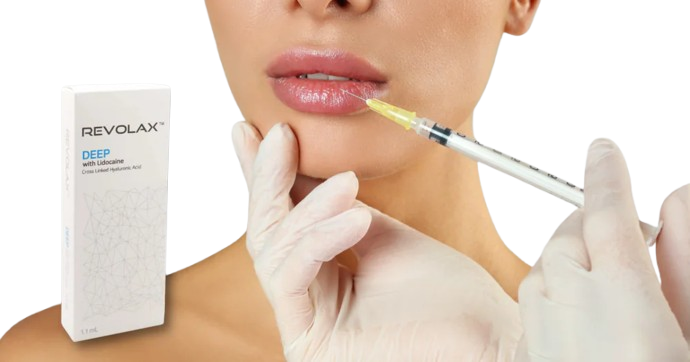Mirena
Mirena IUD Effectiveness
Aug 13, 2025
From 1990 to 2021, the global impact of common gynecological diseases among women of childbearing age has steadily increased. With conditions like polycystic ovary syndrome (PCOS), premenstrual syndrome (PMS), and infertility continuing to contribute to significant reproductive health challenges, it’s clear that effective solutions are more critical than ever. Alongside these challenges, long-acting reversible contraceptives (LARCs) have gained popularity, offering not just high contraceptive efficacy, but also benefits in managing certain menstrual-related symptoms.
Among the LARCs, the Mirena levonorgestrel-releasing intrauterine device (IUD) stands out for its proven ability to prevent pregnancy for up to 8 years, along with its approved therapeutic benefits, such as reducing heavy menstrual bleeding.
In this article, we’ll dive into the effectiveness of the Mirena IUD, explore the clinical trial data and real-world outcomes, and discuss the factors that can influence its performance for different individuals.
Key Takeaways
- Mirena IUD is over 99% effective at preventing pregnancy, providing long-term contraception for up to 8 years with minimal maintenance.
- Mirena’s effectiveness remains consistent in both perfect use and typical use, making it a reliable and low-maintenance option for women.
- The Mirena IUD offers significant therapeutic benefits, including a reduction in heavy menstrual bleeding, painful periods, and the risk of anemia.
- Mirena is FDA-approved for heavy menstrual bleeding, reducing blood loss by up to 80% within the first few months of use.
- It provides relief from dysmenorrhea (painful periods), with many users experiencing lighter and less painful periods.
- Proper placement and regular follow-up appointments are key to maintaining Mirena’s effectiveness and ensuring continued protection.
- Mirena has a highly reliable performance, with data confirming its long-term contraceptive efficacy and minimal need for replacements.
About: Trusted by over 2,000+ global clients since 2014, Maylips has become a leading supplier of cosmetic, skincare, and orthopedic products for medical and aesthetic professionals. Maylips offers a wide range of authentic brand-name products at competitive wholesale prices, sourced from around the world. If you’re looking to buy Mirena IUD online, contact our sales team for guidance.
Contraceptive Success Rates of the Mirena IUD
The Mirena IUD is one of the most effective forms of reversible contraception, with a success rate exceeding 99%. This means fewer than 1 in 100 women using Mirena will become pregnant within a year of use. Its reliability is consistent across different age groups and reproductive histories, making it a versatile option for many women looking for long-term birth control.

Unlike daily contraceptive methods, such as oral contraceptives, Mirena remains highly effective with both perfect use and typical use. Once inserted by a healthcare provider, it requires no ongoing action from the user, minimizing the risk of human error. The device works by releasing levonorgestrel directly into the uterus, which thickens cervical mucus to block sperm and thins the endometrial lining to prevent implantation.
Mirena insertion is a quick and simple procedure, and once placed, it provides dependable protection with minimal maintenance. This makes it an appealing choice for women seeking both contraception and relief from certain menstrual-related symptoms.
Supporting Studies and Success Stories
The effectiveness of Mirena is backed by solid clinical data and real-world outcomes, providing patients and providers with confidence in its use. Here are some key studies and success stories:
- Mirena Extension Trial: A multicenter U.S. study found that the cumulative pregnancy rate was only 0.68% between years 6–8, with a Pearl Index of 0.00 in year 8. This shows that Mirena’s effectiveness remains high even after several years of use.
- Journal of the American Board of Family Medicine: A 2025 study confirmed that Mirena continues to offer contraceptive efficacy through 8 years, with 1 pregnancy per 357 patient-years. This reinforces the device’s reliability as a long-term contraceptive option.
- Manufacturer Data: According to Bayer, the Mirena manufacturer, the IUD is over 99% effective for up to 8 years, with fewer than one pregnancy per 100 women annually.
- Patient Review: A 20-year-old college student shared her experience on WebMD, saying, “No periods in years—no hassle. Whoever invented it deserves a Nobel prize.” While this is a personal story, it highlights how Mirena has significantly improved her quality of life, particularly in terms of ease and reliability.
For many users, Mirena not only delivers dependable contraception but also makes a meaningful difference in managing menstrual symptoms, improving overall well-being.
Approved Duration and Long-Term Efficacy of Mirena
Mirena is FDA-approved for pregnancy prevention for up to 8 years, with data supporting its high efficacy throughout this duration. Although the levonorgestrel release rate gradually declines over time, studies show that Mirena’s effectiveness remains high, offering reassurance for women who want long-term protection without frequent replacements.

This extended approval provides significant advantages for those seeking a convenient, low-maintenance option. Unlike short-term methods, Mirena only requires a single placement procedure, followed by minimal upkeep. Annual checkups are still recommended to ensure proper placement and to monitor for any potential issues.
The cost benefits are also noteworthy. With Mirena’s long lifespan, patients can enjoy years of reliable contraception with a single device, making it a cost-effective solution for many women. Mirena’s 8-year duration is especially appealing for those who prefer continuous, hassle-free birth control.
Therapeutic Benefits Beyond Contraception with Mirena
In addition to its contraceptive function, Mirena has clinically proven therapeutic benefits that improve women’s health and quality of life. It is FDA-approved for treating heavy menstrual bleeding, reducing blood loss by up to 80% within the first few months. This can be life-changing for women with anemia or excessive flow, preventing fatigue and iron deficiency.
Mirena also provides effective relief from dysmenorrhea (painful periods). By releasing a steady dose of levonorgestrel, it thins the uterine lining, resulting in lighter, less painful periods, and reduces the need for pain medications.
Additional Non-Contraceptive Benefits
- Improved Quality of Sleep: Reduced cramping and bleeding can lead to fewer disruptions at night, promoting better rest.
- Lower Risk of Menstrual-Related Migraines: Hormonal stabilization may help reduce the frequency and intensity of headaches triggered by the menstrual cycle.
- Enhanced Emotional Well-Being: Many users report improved mood and reduced anxiety linked to menstrual symptoms, although robust evidence for these outcomes is still emerging.
- Endometrial Protection: In some countries, Mirena is used to reduce the risk of endometrial hyperplasia in women on estrogen therapy. However, this is considered an off-label indication in the U.S.
- Convenience for Active Lifestyles: With predictable, lighter cycles, women can participate in sports, travel, and daily activities without the interruptions of heavy menstrual bleeding.
These benefits make Mirena an attractive option for women looking for both effective contraception and significant improvements in menstrual health.
Clinical Factors That Influence Mirena’s Effectiveness
While Mirena is highly effective, its reliability depends on several clinical considerations that influence both its contraceptive and therapeutic benefits. Addressing these factors proactively can help reduce risks such as expulsion, discomfort, or diminished efficacy.
Before Mirena insertion, patients should be screened for uterine abnormalities and infections that could interfere with device placement or retention. Ongoing monitoring ensures the device stays correctly positioned and functions properly over time.
Key Factors Influencing Mirena IUD Effectiveness
- Proper Placement and Verification: Confirming proper placement through a pelvic exam or ultrasound ensures optimal positioning and reduces the risk of expulsion.
- Timely Follow-Up Appointments: Regular check-ins help identify any issues or shifts in the device before they affect performance.
- Absence of Uterine Malformations or Scarring: Structural anomalies may hinder proper placement or retention, compromising the device’s efficacy.
- Monitoring for Device Displacement: Even rare shifts can reduce contraceptive reliability. Early detection allows for timely interventions.
- Awareness of Expulsion or Infection Signs: Recognizing early warning signs of infection or expulsion ensures prompt intervention and continued protection.
Conclusion
Mirena offers highly reliable, long-term pregnancy prevention, with over 99% effectiveness throughout its 8-year duration. Its effectiveness remains consistent, even with typical use, making it a dependable and low-maintenance contraceptive option. Beyond contraception, it provides valuable therapeutic benefits, such as reducing heavy menstrual bleeding and relieving painful periods, significantly improving the quality of life for many women.
With proper placement and periodic monitoring, Mirena remains an excellent choice for those seeking reliable, long-term contraception and improvements in menstrual health. Regular follow-ups and a proactive approach to managing clinical factors ensure the continued success of the Mirena IUD.
FAQs
1. How effective is Mirena in preventing pregnancy?
The Mirena IUD is over 99% effective, meaning fewer than 1 in 100 women will become pregnant in a year of use.
2. How long can I keep Mirena in place?
Mirena is FDA-approved for up to 8 years, maintaining high contraceptive reliability throughout this period.
3. Does Mirena work for both perfect and typical use?
Yes, the effectiveness of Mirena is almost identical in both perfect use and typical use, as it doesn’t require daily action from the user.
4. Can Mirena help with heavy menstrual bleeding?
Yes, Mirena is FDA-approved for treating heavy menstrual bleeding, reducing blood loss by up to 80% in many women.
5. Does Mirena help with menstrual cramps?
Yes, Mirena helps reduce dysmenorrhea (painful periods), resulting in lighter and less painful periods for many users.
6. What are the main therapeutic benefits of Mirena?
Mirena helps reduce heavy bleeding, pain, and the risk of anemia, improving hemoglobin levels and menstrual cycle predictability.
7. What can affect Mirena’s effectiveness?
Factors like improper placement, device displacement, or certain uterine conditions can reduce its reliability. Regular checkups are essential to maintain protection.
Talk with our sales representative.
Book a Meeting
References
Gao Y, Wang X, Wang Q, et al. Rising global burden of common gynecological diseases in women of childbearing age from 1990 to 2021: an update from the Global Burden of Disease Study 2021. Reproductive Health. 2025;22(1). doi:10.1186/s12978-025-02013-1
Mirena [package insert]. Bayer HealthCare Pharmaceuticals Inc.; 2008. https://www.accessdata.fda.gov/drugsatfda_docs/label/2008/021225s019lbl.pdf
Bayer’s new study on Mirena: A potential Game-Changer for Endometrial Hyperplasia treatment. The Globe and Mail. https://www.theglobeandmail.com/investing/markets/stocks/BAYRY/pressreleases/34029195/bayers-new-study-on-mirena-a-potential-game-changer-for-endometrial-hyperplasia-treatment/.





